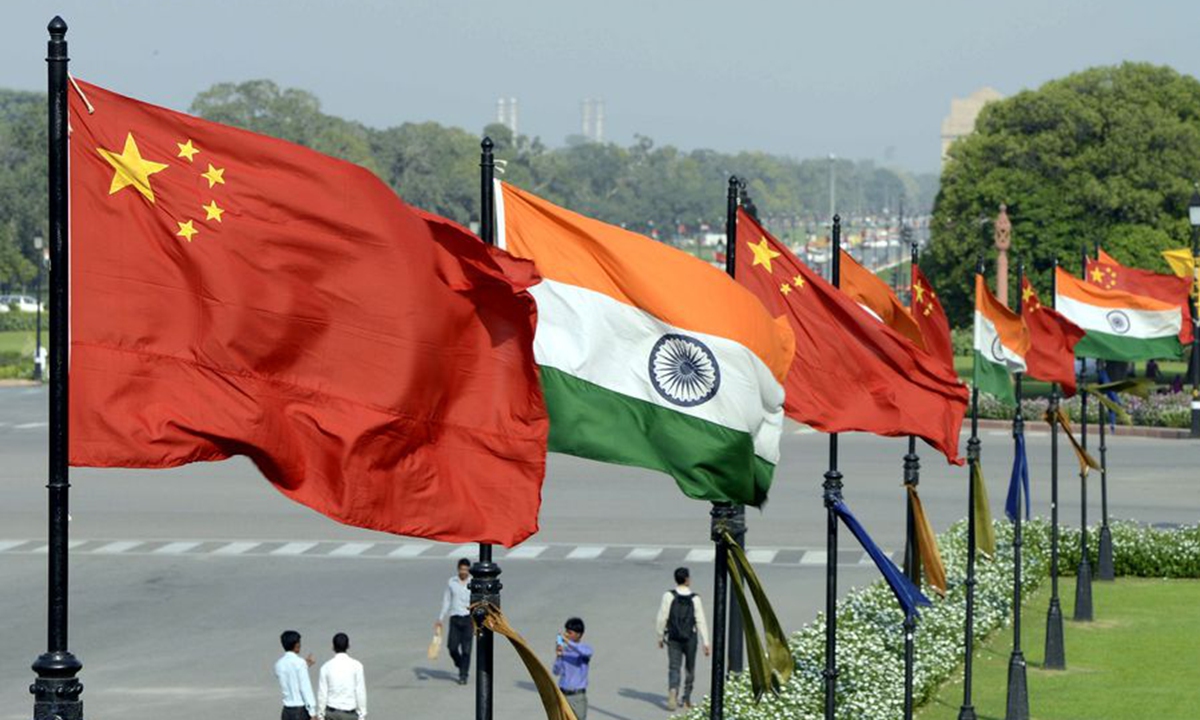Chinese military returns to border? Indian source says summer deployment routine for both sides

China India Photo: Xinhua
After Indian media hyped the Chinese army's return to "exercise areas near eastern Ladakh," the Global Times learned from an Indian source that it is routine for the Indian and Chinese armies to make deployments along the border in summer, with experts warning India not to misjudge the situation and trigger a new round of conflict, and reminding the country not to misplace their resources amid the COVID-19 epidemic.
India Today, citing an anonymous source, recently hyped up the Chinese army's return to "exercise areas near Eastern Ladakh," and said India forces have also "strengthened their position in the zone."
An Indian source told the Global Times that every summer, Indian and Chinese militaries would make deployment in border areas, including regular drills and road and infrastructure construction. However, since the border standoff, any actions along the border would be put under the spotlight.
" China's activities near the border and in airports in Hotan, Kashgar, Lhasa, Ali, Xigaze or other places will be closely watched by the Indian side. I believe it is the same the other way around."
The Indian source also suggested that the militaries of India and China make full use of the existing dialogue and communication mechanism at all levels to inform each other of their military activities in sensitive areas in a timely manner to avoid misjudgment that may trigger a new round of conflict.
No Indian government officials have spoken out about the two countries' military presence along the border and hyping against China came from the Indian media citing an anonymous source, reflecting an excessive precautionary mindset among some individuals in India, Qian Feng, director of the research department at the National Strategy Institute at Tsinghua University, told the Global Times on Thursday. Chinese military moves along the border are always within the allowed range made under agreements between the two countries, Qian added.
The Chinese expert said some forces in India might attempt to use the border conflict to divert public attention from its handling of the COVID-19 epidemic, but they should know that further hyping up and complicating the border issue will not fix any problems, but only damage the hard-earned de-escalation efforts.
Qian said that India should not consume its limited energy on the border conflict and urged it to focus on curbing the domestic epidemic.
Reports showed that since the border confrontation, the Indian army has continued unabated in advancing infrastructure in border areas. The Northern Command of Indian armies has put in place a slew of measures to ensure that the operational capabilities of frontline soldiers will not be affected by the virus, such as 100 percent vaccination coverage, according to the Print.
Citing an Indian source, the Print admitted that "summer is the period when we get to carry out our infrastructure activities. This also includes habitat and other logistics work for the enhanced troop level in the region. There are also channels of transportation that need to be fixed and also made."
In addition to infrastructure buildup, the Indian army further strengthened its purchase of military hardware. South Korean firm Hanwha Defense has offered to sell its K21-105 light tank to the Indian army, according to The EurAsian Times on May 12. India is also close to inking a $2.42 billion deal with the US for six more advanced P-8I submarine-hunting aircraft, Times of India reported.

